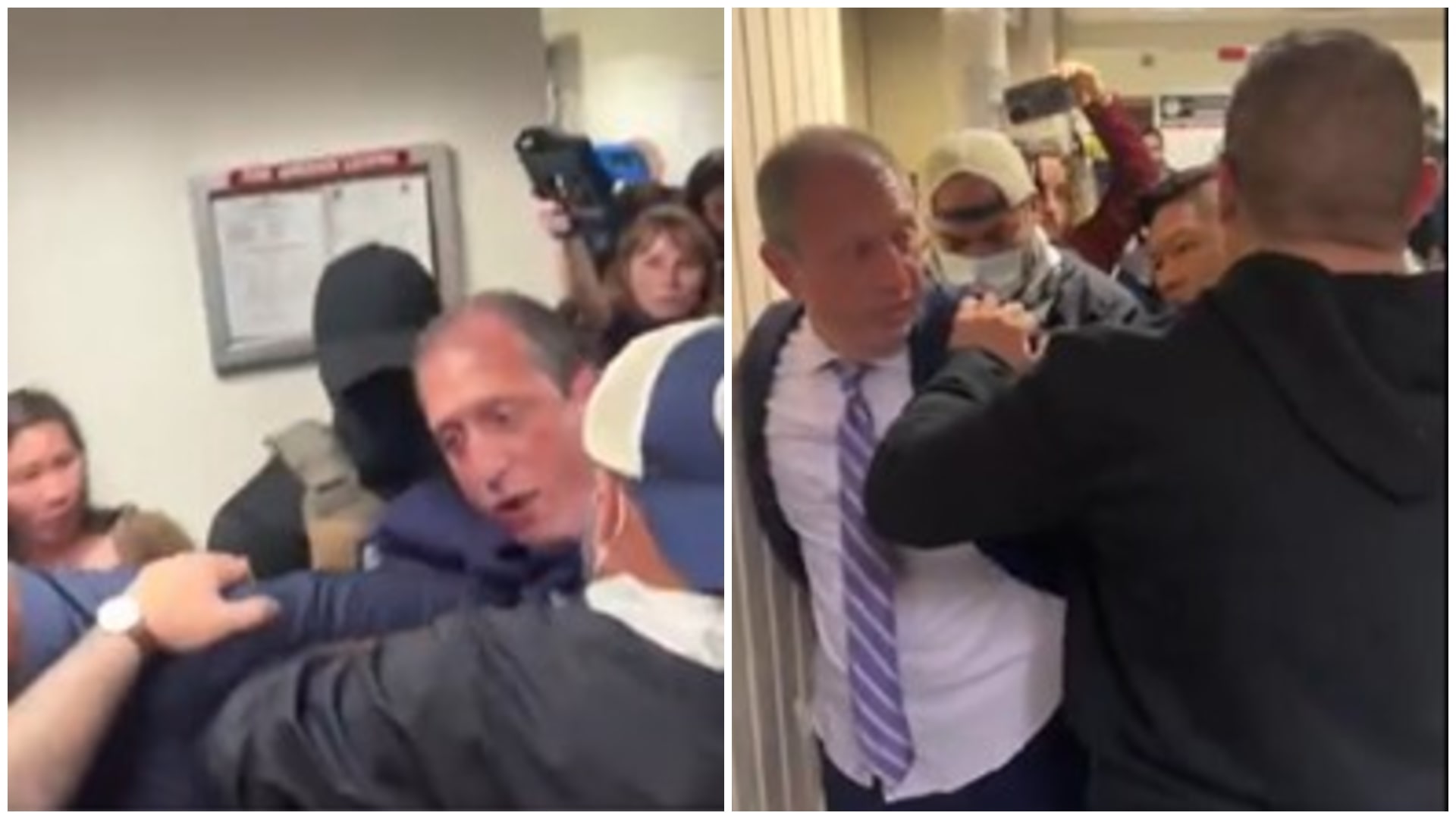Rep. Maxine Dexter (D-OR) has sparked controversy by accusing former President Donald Trump of “illegally abducting” Kilmar Abrego Garcia, a 29-year-old illegal alien reportedly involved with the MS-13 gang. Dexter, along with Reps. Robert Garcia (D-CA), Maxwell Frost (D-FL), and Yassamin Ansari (D-AZ), traveled to El Salvador to urge President Nayib Bukele to release Abrego Garcia. The group claims Trump endangered Americans by deporting Abrego Garcia, who was arrested in 2019 on charges related to gang activity and domestic abuse.
In a video uploaded to social media platform X, Dexter expressed her concerns about Abrego Garcia’s deportation. She argues that this act disregards a Supreme Court order meant to facilitate Abrego Garcia’s return to the U.S. Dexter states, “This is not just a threat to all people in the United States who could be illegally abducted, detained, and transported internationally against their will.”
Dexter believes this situation signals a constitutional crisis more severe than any seen before. She insists on taking action, declaring, “We cannot stay silent. We must stand loud.” Her determination to see Abrego Garcia released highlights her commitment to challenging what she views as an overreach of executive power.
Abrego Garcia’s 2019 arrest in Prince George’s County, Maryland, revealed his alleged gang affiliations. He was found with cash, drugs, and attire associated with MS-13, including a Chicago Bulls cap and a sweatshirt with symbolic imagery. The Department of Homeland Security (DHS) identified these items as indicators of gang membership.
A trusted criminal informant confirmed Abrego Garcia’s involvement with MS-13, even detailing his rank within the gang. Their testimony was so convincing that two federal immigration judges decided to keep Abrego Garcia in detention. The DHS has also disclosed allegations of domestic abuse made by Abrego Garcia’s wife in 2021, further complicating his legal situation.
Recently, DHS officials reported an incident in Tennessee where Abrego Garcia was stopped for speeding. The police discovered eight individuals in his vehicle, raising suspicions of human trafficking. The passengers all provided the same home address, intensifying concerns.
During the Tennessee traffic stop, Abrego Garcia attempted to mislead officers by feigning limited English proficiency. He claimed to work in construction for the vehicle’s registered owner, whom he referred to as his boss. This behavior only deepened suspicions of his involvement in criminal activities.
Abrego Garcia first entered the U.S. undetected in 2011, crossing the southern border, and has since resided in Maryland. His case has become a flashpoint in discussions about immigration policy and law enforcement. Conservatives argue that deporting individuals like Abrego Garcia is crucial for national security.
The situation underscores the ongoing debate over immigration and border security. Supporters of Trump’s policies maintain that strict enforcement is necessary to protect American communities. Meanwhile, critics like Dexter view these actions as violations of human rights and legal overreach.
This case has drawn attention from various conservative media outlets, emphasizing the importance of upholding immigration laws. Many argue that the deportation of gang members and criminals safeguards American citizens. The tension between maintaining national security and protecting individual rights remains a contentious issue.
As the political landscape continues to evolve, discussions about immigration and deportation remain central to the national conversation. The differing opinions on how to handle cases like Abrego Garcia’s reflect broader ideological divides. This ongoing debate highlights the complexities of balancing security with compassion.
The actions of Dexter and her colleagues have added fuel to the fire of this contentious topic. Their trip to El Salvador and calls for Abrego Garcia’s release have sparked both support and criticism. This situation exemplifies the challenges faced by lawmakers in addressing immigration issues.
While the debate rages on, the impact of these policies on communities across the nation is undeniable. The conversation around immigration and deportation policies will likely continue to shape political discourse. Both sides remain steadfast in their beliefs, advocating for what they see as the best path forward.
The resolution of this case and others like it will undoubtedly influence future policy decisions. As lawmakers grapple with these complex issues, the nation watches closely. The outcome of these debates will have lasting implications for the country’s approach to immigration and national security.



